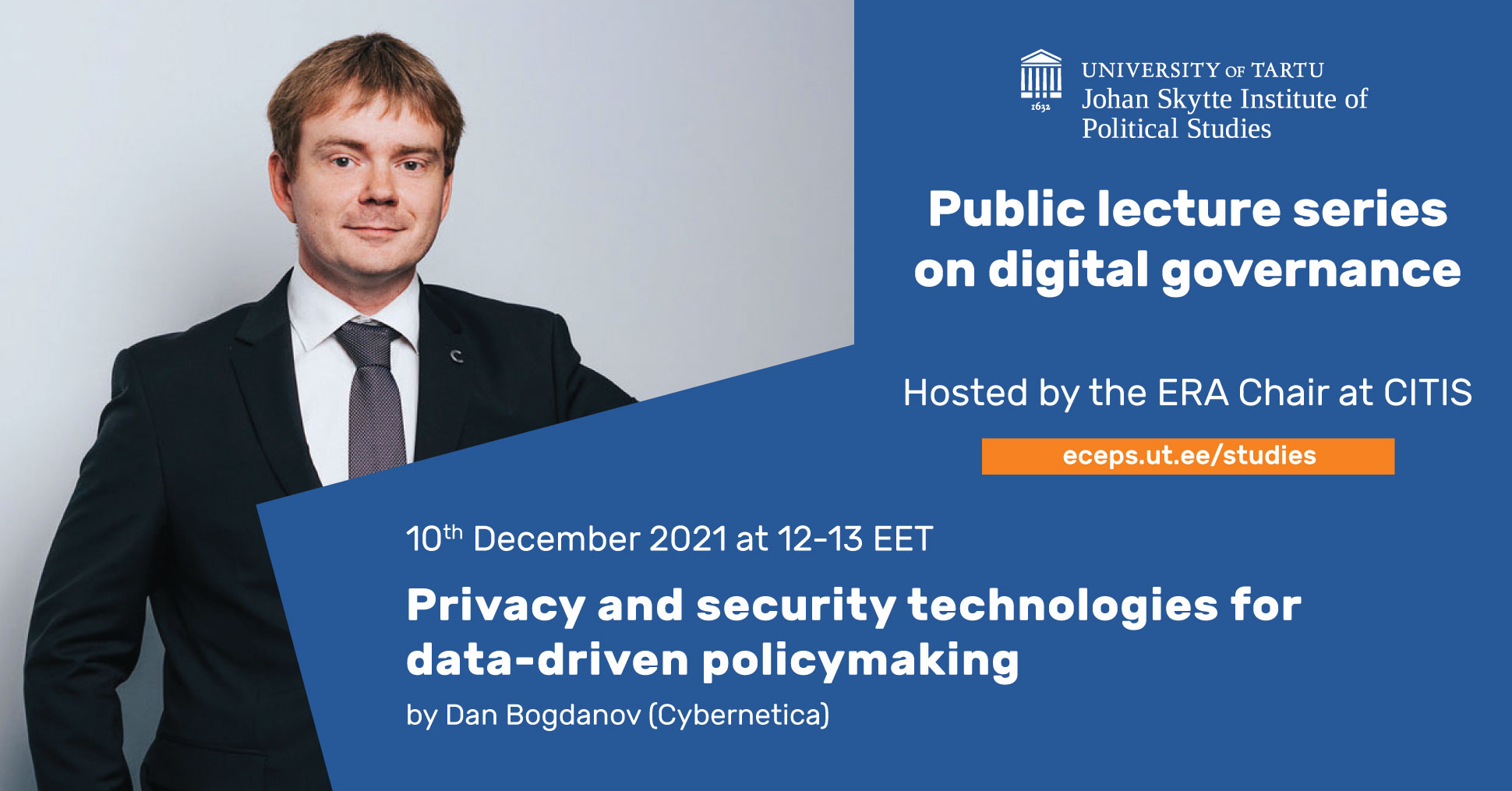Another e-governance public lecture by the ECePS ERA Chair in University of Tartu is coming up! On Friday, December 10th at 12.00 (EET), Dan Bogdanov from Cybernetica will talk about privacy and security technologies for data-driven policymaking. The lecture will be followed by a discussion moderated by Prof Robert Krimmer. The event is fully online and in English.
To participate, please register here to receive the Zoom link: https://ut-ee.zoom.us/meeting/register/tJErfuurqj0pH9EJgtIUIVTW6A8dZTQw_9mc
Brief summary: In the data-driven world, policy-makers have to deal with anticipation, planning, monitoring, and evaluation of policies (read eg "The OECD Digital Government Policy Framework" for more). To prepare data for the decision-making, they have to combine and aggregate data from several data sources to the government data warehouse or data lake. In this process, they have to have compliance with privacy regulations and not to scare off the citizens.
Dr. Dan Bogdanov met his first significant privacy challenges while working with the data collection systems of the Estonian Genome Center. This inspired him to start researching cryptographic solutions for privacy problems. He is the inventor of Sharemind, a secure multi-party computation system for collecting, sharing and processing private data. Sharemind is a new kind of computer that analyses digital data without seeing the individual values. This achieves beyond-the-state-of-the-art data protection, as has been demonstrated in various applications processing tax, education, genomic and financial data.
Dr. Bogdanov has been a research team lead for multiple privacy technology research projects with DARPA – an agency of the United States Department of Defense, European FP7 and Horizon 2020. He is the co-author of the ISO/IEC 29101 standard on the architecture of privacy-preserving systems and the ISO/IEC 19592 standard on secret sharing. Today, Dr. Bogdanov leads the Information Security Research Institute at Cybernetica, an Estonian company creating information security, e-Governance and maritime security solutions. He is also a board member of the MPC Alliance, an industry organisation of companies developing and using secure multi-party computation technology.

